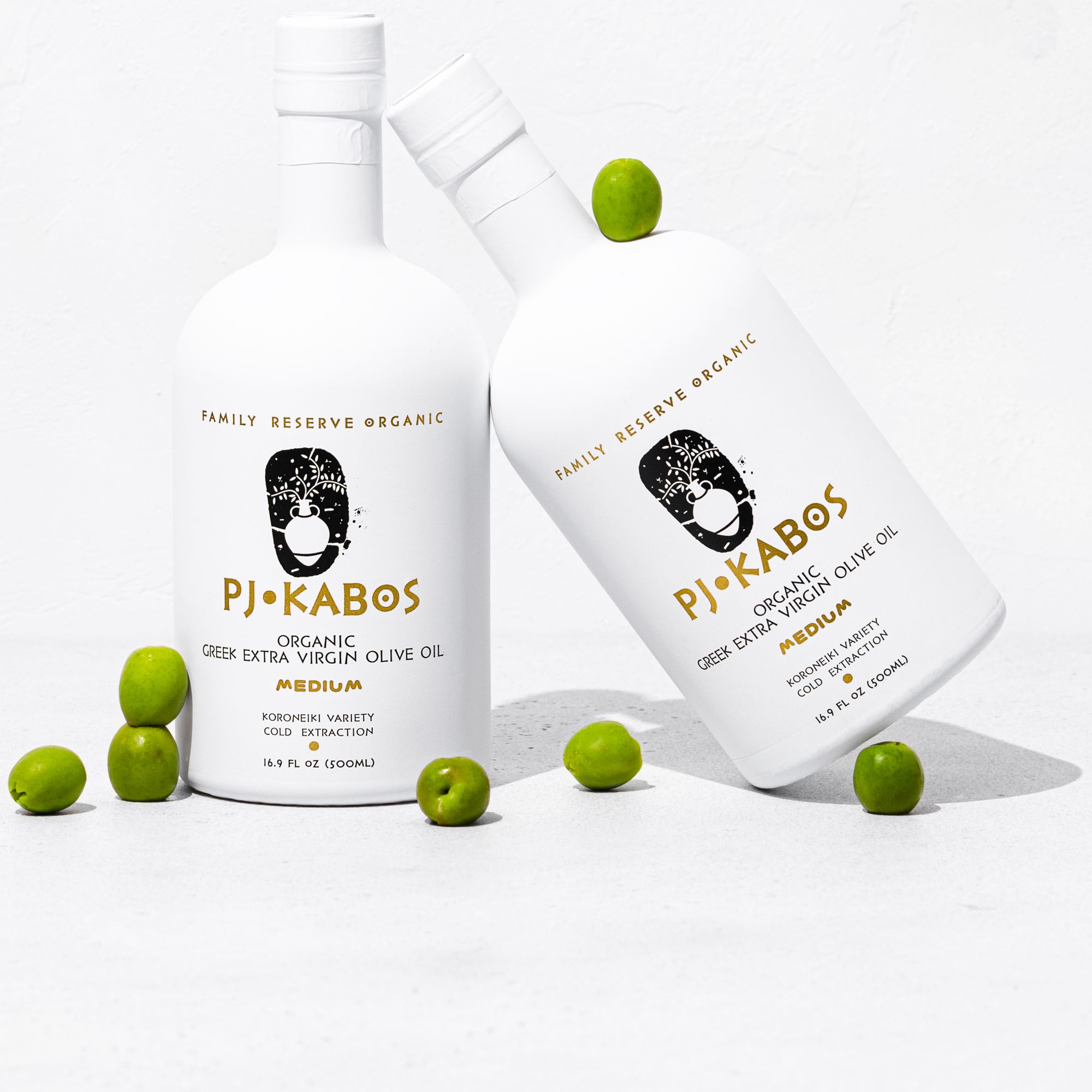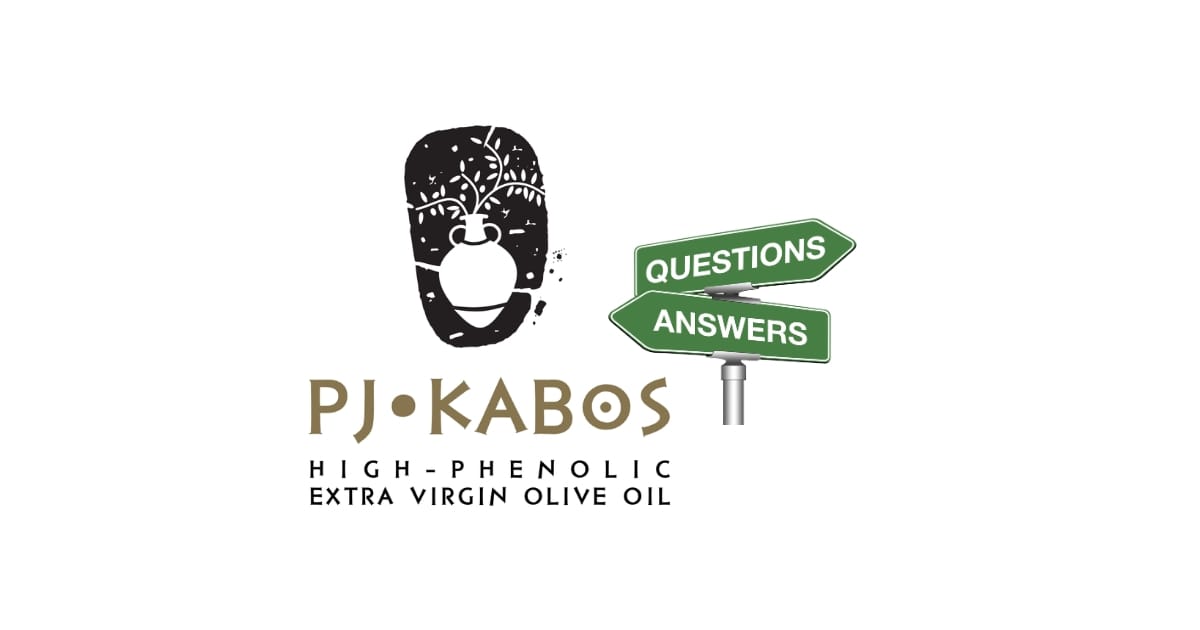Olive oil has been used for hair and skin care since ancient times. What does the science have to say about olive oil and beauty?
Olive oil is clearly good for your health—both physical and mental. Research suggests it supports cardiovascular health, mental health, immune health, bone health, and gut health. It also possesses anti-cancer properties and and boosts cognitive functioning (some studies even indicate it may reduce risk for Alzheimer’s disease and other forms of dementia).
But what about boosting your natural glow? Is extra virgin olive oil ever useful as a beauty treatment when applied topically to skin and hair? Or what about when you consume it—could it enhance your looks from the inside out? Jennifer Lopez insisted that it be a key ingredient in her new skincare line, so there has to be something to it, right?
Turns out, EVOO can be a good beauty treatment—but it’s not actually the top choice for all applications. Here’s what the existing science says, plus dermatologist tips on when you should and shouldn’t use olive oil in your beauty routine.
Eating olive oil supports the long-term health of your skin.
Let’s start with something most experts can agree on: Consuming extra virgin olive oil is definitely good for your skin and overall appearance, particularly when eaten as part of a healthy diet (think: Mediterranean diet). For a beauty boost, some experts believe it’s best to sip a small amount of straight EVOO first thing in the morning, while your gut is just waking up, although there’s no research to confirm that the time of day actually matters.
One of the main drivers of aging is oxidative stress—and things like excessive sun exposure, air pollutants, and eating too much sugar can all drive oxidative stress within the body, contributing to cellular and DNA damage that increases risk for disease and accelerates the breakdown skin’s collagen, which contributes to outward signs of aging such as fine lines and wrinkles. But, extra virgin olive oil (particularly high-polyphenol varieties) contain high levels of vitamin E, squalene, and polyphenol compounds, all of which possess antioxidant properties that help neutralize the free radicals that contribute to oxidative stress and aging.
Studies have shown that, among animals fed diets enriched with different fat sources, those that consumed virgin olive oil experienced far less age-associated DNA damage than mice fed sunflower oil. Research also shows that consuming olive oil appears to speed wound healing, suggesting that eating it has real outward benefits. These skin-healing benefits could also manifest at accelerated healing from acne blemishes and other skin irritation.
Consuming healthy sources of fat is also beneficial for maintaining optimally hydrated, supple, “springy” skin. In one study, higher intake of fat, particularly monounsaturated fats (the type found in olive oil), was associated with increased skin elasticity.
Finally, consuming healthy fats such as olive oil can increase your body’s absorption of various phytochemicals, beneficial compounds such as beta carotene and lycopene found in plant foods like sweet potatoes, carrots, and tomatoes. These red- and orange-hued compounds have been shown to help protect skin against sun damage as well as provide skin with a subtle natural glow. (Just don’t go overboard on eating carrots, or you’ll legitimately turn orange!)
Olive oil as a topical skin treatment
While some celebs swear by slathering EVOO directly on their face and skin, the evidence for this is somewhat mixed—and while it may have some benefit, it doesn’t always appear to be the best topical oil from a skin health and beauty standpoint. Even though it’s packed with anti-inflammatory and antioxidant compounds, those aren’t the only factors that matter when it comes to topical skin health, as you’ll find out. Here are a few situations in which olive oil may benefit your beauty routine and when it might do more harm than good.
Olive oil helps gently remove makeup.
Like other oils and oil-based products, olive oil can help break down and lift oil-soluble residues found in makeup from your skin. This can make it a useful addition to your pre-cleansing routine. After using olive oil on your face, you’ll still need to follow up with your regular cleanser in order to fully remove makeup residue. If you want to try this, simply add a few drops of olive oil to your palms, rub them together to warm the oil, and then massage the oil into your dry skin using circular motions. After about a minute, wipe the makeup residue from your face with a warm damp washcloth and then wash your face with your normal cleanser.
Olive oil can lock in moisture and soften skin.
Like all oils, olive oil functions as an occlusive, meaning it locks in skin’s moisture and may help prevent water loss (it doesn’t actually moisturize skin itself, so your skin needs an initial moisture layer for EVOO to be beneficial). Olive oil also has emollient properties, meaning it can help soften rough, scaly skin like you’d find on your elbows. The best time to apply olive oil is when your skin is slightly wet or as a final step after you’ve applied your moisturizer. You can also mix a few drops into your moisturizer before you apply.
Olive oil is more likely to clog pores than some other oils.
Even though olive oil can help lock in moisture and remove makeup, it still may not be the best option for you, depending on your specific skin type. Because olive oil is composed of larger molecules than some other skin-friendly oils, like rosehip oil and jojoba oil, it is more likely to clog your pores (it’s considered mildly comedogenic). So it’s definitely not advised if you’re prone to acne. “Olive oil is a naturally heavy oil, making it a breeding ground for bacteria that can clog pores and cause acne,” said dermatologist Mona Gohara, MD, associate clinical professor at Yale University, in a recent interview with Cosmopolitan’s beauty editor.
Olive oil may contribute to skin irritation if you’re already sensitive.
Some small studies suggest that oleic acid, a type of monounsaturated fat found in olive oil, may also be harmful to your skin’s natural barrier and promote irritation, particularly if you’re already prone to rosacea, dermatitis, or eczema. While applying olive oil to the skin every now and then probably won’t cause problems, one study found that adults who used olive oil as a moisturizer for four weeks straight experienced mild skin redness, possibly due to the damaging or thinning of the skin’s protective lipid barrier, which normally helps prevent water loss and protect against infections and allergies. Similar findings have been made on infants, too, which is why it’s not advised to use undiluted olive oil on infants with diaper rash.
An important note, however, is that olive oil’s pore clogging and irritating effects can be mitigated by other ingredients—so high quality skincare products featuring olive oil as just one of its ingredients probably won’t cause much of an issue.
Olive oil as a topical hair treatment
Olive oil can be a great simple way to boost the health of your hair, particularly if you deal with frizz, flyaways, or dry and damaged from heat-treatment and environmental pollutants. But there are also still a few situations when you should pass or proceed with caution.
Olive oil can smooth, soften, and detangle frizzy or damaged hair
Compared to some other oils that just sit on the surface of your hair and contribute to a greasy appearance (like mineral oil), research shows that monounsaturated fatty acids—the main fat in olive oil—can actually penetrate the hair shaft. While it doesn’t act as a moisturizer itself, it does help your hair retain moisture from other sources such as water-based conditioners. It also smoothes and seals scaly cuticles (the outermost portion of the hair shaft), which lubricates and detangles strands and makes damaged hair appear softer and smoother.
To reap the benefits, rub a very small amount EVOO between your palms and apply to damaged ends or wherever you need to tame frizzy flyaways; apply liberally do your hair about 10-20 minutes before your shower (never apply olive oil in the shower or you risk a serious slip-and-fall!); or use olive oil as a hair mask.
Olive oil scalp massages may promote hair growth
There’s no miracle treatment for hair growth, but a small study on mice found that topical application of a bioactive compound in olive oil called oleuropein can positively impact the hair growth cycle (specifically, it upregulates genetic pathways that induce anagenic hair growth). But we don’t know if it would have the same effect on human hair growth. However, gently massaging the scalp with olive oil may have positive effects on hair thickness. One study found that people who gave themselves a daily 4-minute scalp massage for six months had thicker hair by the end, and more recent research supports the use of scalp massages for androgenic alopecia, a form of hair loss.
Olive oil can make dandruff worse
Surprisingly, olive oil isn’t the best for soothing a flaky, dandruffy scalp. Dandruff is caused by an overgrowth of yeast on the scalp, and olive oil can actually promote further growth of this yeast if not washed and rinsed thoroughly from your hair. (This is also the reason you shouldn’t use olive oil to treat cradle cap in infants.)
Olive oil and heat treating don’t always mix
If you slather your strands in EVOO and then apply high heat (think: using a blow dryer, curling iron, straightener, etc), you’re essentially deep frying them, which causes serious damage! Always heat treat your hair first and then apply a small amount of olive oil to treat frizz and flyaways if needed.
Bottom line on olive oil’s beauty benefits
While olive oil has some benefits when applied topically to skin and hair, these benefits are not necessarily more significant than those of other skin-friendly oils such as jojoba oil or rosehip oil. There are also some downsides to using olive oil topically, particularly if you’re prone to acne, dandruff, or irritated skin. Figuring out if olive oil should be part of your skincare and haircare routine may take a bit of trial and error—even with the potential cons listed above, some people still swear by it.
Where extra virgin olive oil truly benefits your beauty routine, though, is in your diet. So keep pouring a hearty glug into those recipes to support your overall appearance from the inside out.
Product placement
PJ KABOS 'Family Reserve Organic - Medium'
High Phenolic and 2022 Gold-Award Winner.
Declared as 'One of the World's Best Olive Oils'.
Click here to shop.





